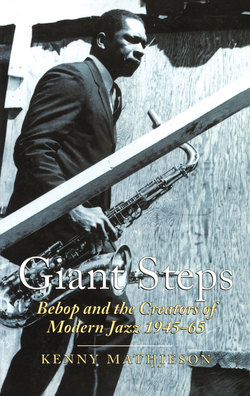Читать книгу Giant Steps - Kenny Mathieson - Страница 12
На сайте Литреса книга снята с продажи.
ОглавлениеFats Navarro
Fats Navarro was dead before the LP era began, officially as a result of latent tuberculosis, although the disease was abetted by heroin addiction, the real cause of his decline. His recorded legacy came entirely from the days of 78 rpm releases, and from a variety of preserved broadcasts which make up around a third of the surviving recordings on which he is heard. Even from that limited source, however, there has emerged a general consensus among musicians, critics and listeners that the trumpeter stood alongside Dizzy Gillespie and Miles Davis as the most significant performer on that instrument in early bebop.
Born Theodore Navarro of mixed black, Chinese and Cuban descent in Key West, Florida, on 24 September 1923, he played both piano and tenor saxophone as a youth but by the age of seventeen he was already touring in dance bands as a trumpeter. One such band dropped him off in Ohio in 1941, where he studied briefly before hooking up with the respected Indianapolis-based territory band led by Snookum Russell. In 1943, he joined Andy Kirk’s nationally-known outfit, where he partnered Howard McGhee in the trumpet section, but his big breakthrough to prominence came in 1945, when singer Billy Eckstine brought him into his historically crucial bebop-inspired big band as principal trumpet, replacing Dizzy Gillespie, who left to form his own unit.
Dizzy took Eckstine along to hear Navarro (who was variously known as Fats, Fat Boy or Fat Girl, from his high voice and effeminate manner as well as his girth) play with Kirk’s band, and it didn’t take long for the singer to make up his mind. As he recalled later for Nat Shapiro and Nat Hentoff’s oral history of jazz, Hear Me Talkin’ to Ya, he went with Dizzy to the club where the band were playing,
and the only thing Fats had to blow (because Howard McGhee was the featured trumpet player) was behind a chorus number. But he was wailing behind this number, and I said to myself, ‘This is good enough; this’ll fit.’
